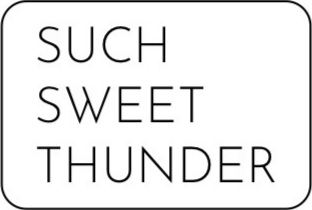The King's Microphones
In 2010 I recorded and mixed the score for the highly successful British film the King’s Speech. Below is a small piece I wrote after the film’s release about some research I undertook about the royal microphones and the connection between Abbey Road/EMI and the British Royal family.
I also made some images at the time some of which I will include here (coming soon).
In 2010, composer Alexandre Desplat asked me to record his score for a small British film by emerging director Tom Hooper. When I previewed the film I learnt that the central character was the Duke of York, later King George VI, and the story centred on the difficulties he had to overcome with his aversion to speaking in public.
In my role as senior engineer at Abbey Road Studios I had made a number of visits over the years to our parent company’s (EMI’s) archives and knew that a small number of precious microphones existed that were made exclusively for the British Royal Family. I thought it would be fitting to have some of these microphones at our recording sessions; at the very least they could act as objects of curiosity and inspiration for the film makers. One thing led to another and with the cooperation of the EMI Archive Trust and Abbey Road technician, Lester Smith, I was able to actually record the orchestra inside Abbey Road with three of these historic microphones including the one made for King George VI.
These microphones are works of highly skilled craftsmanship and are aesthetically pleasing, made with gilt, silver and chrome detailing, bearing royal coats of arms and other individual insignia. They had never before been used for any purpose other than royal speeches and we were delighted and excited to hear how sensitive, poignant and elegant Alexandre's music sounded when recorded by them. Driven on by Tom Hooper's enthusiasm I later found a solution to rerecording all the significant speeches given by actor Colin Firth using these microphones.
It was a rare opportunity for us to deliver the music and sound with such a unified audio concept and the film’s well-documented success gave opportunity for Alexandre and Tom to recognise the historical importance that EMI and Abbey Road have had with the British Royal family.
My curiosity was fuelled further by additional visits to our archives. Subsequently I was able to pore over documentation held in seven leather bound boxes, each designed as a book with gold embossed lettering. These royal boxes contained correspondence and notes on the many speeches that our company was charged with. They also contain letters between the heads of EMI and the Royal Family about specific arrangements for reviewing the many recordings that were made in the early part of last century. One letter expressed congratulations and gratitude in manufacturing a recording of the Duke of York (1930) knowing the difficulties that needed to be overcome. The papers also contain details about distribution of royalties to charities based on the successful sale of these records in Britain and throughout the Commonwealth. It was by reading some of these documents that I understood the significance that EMI had in enabling the Royal Family to use the new technologies of radio and gramophones to communicate matters of interest and national importance. At the conclusion of my research I opened one of two impressive master presentations that contained the original release of the famous speech that King George VI made on the declaration of war in 1939. The King's signature, hand inscribed on vellum, is laid inside the blue velvet and leather bound case that contains the recording. Like the ornate microphones and the blue royal boxes, the quality of the casing for this historic and significant recording is unique and striking.
We as a company have benefitted from over 100 years of commitment to produce and manufacture music and recordings of the highest quality and standards. The numerous recordings by senior members of the Royal Family bear testimony to this. This is the motivation behind the rerelease, with the Royal Family’s approval, of a newly mastered presentation of the King's Speech of 3 September 1939.
Peter Cobbin
Director of Engineering Abbey Road Studios June 2012

